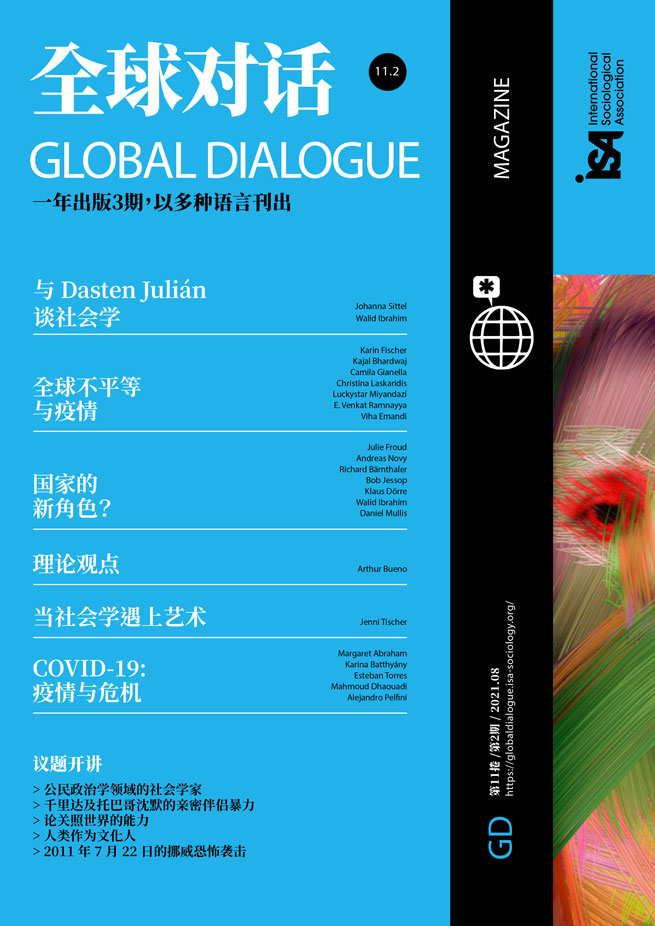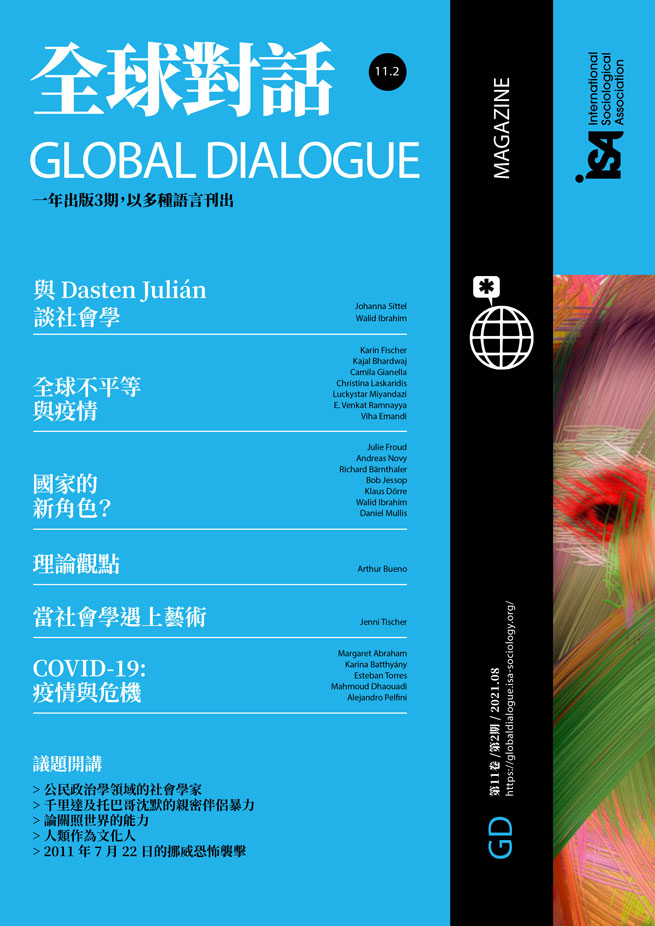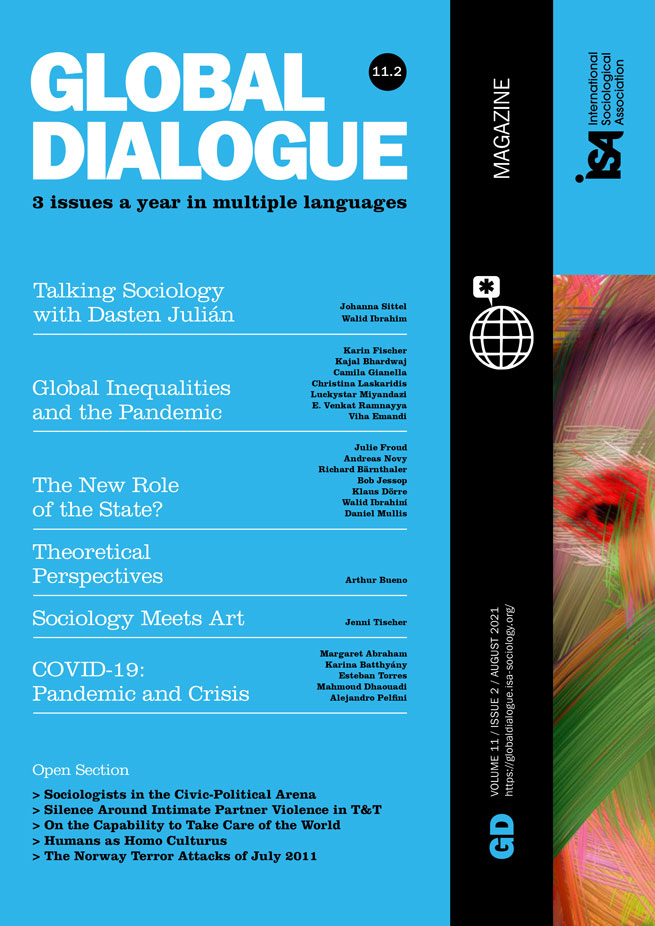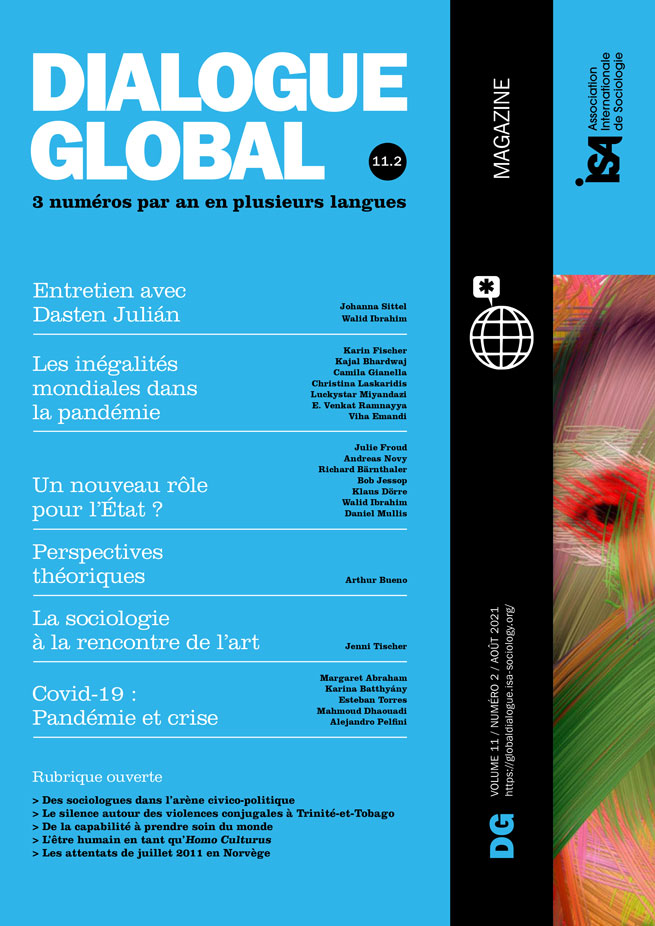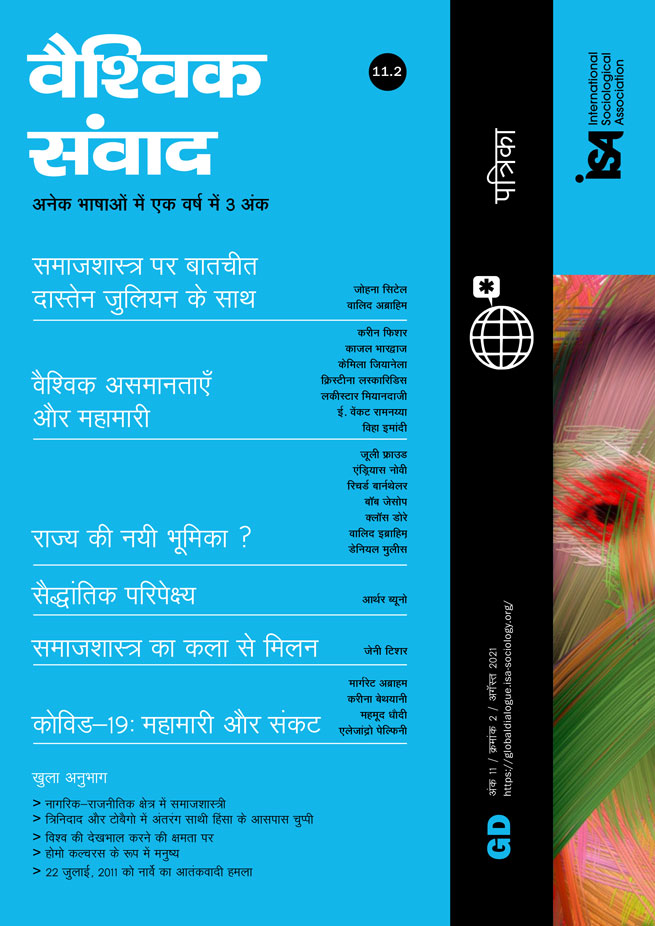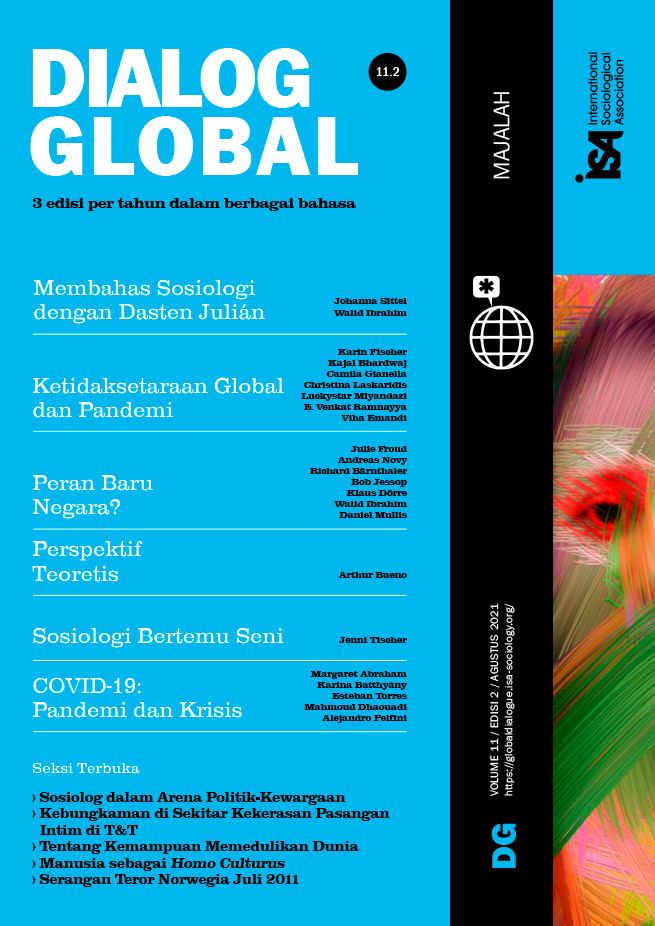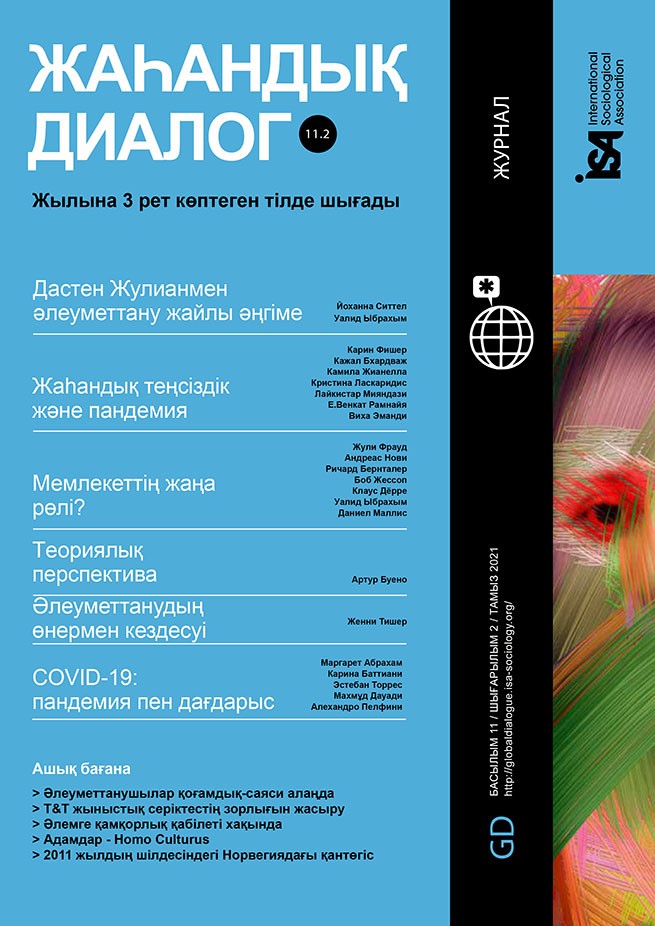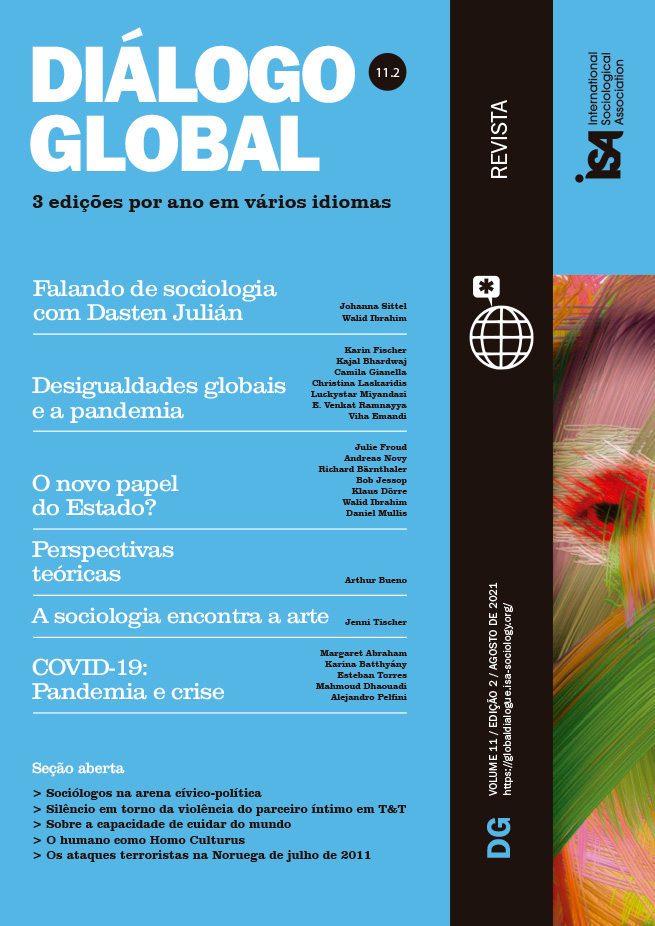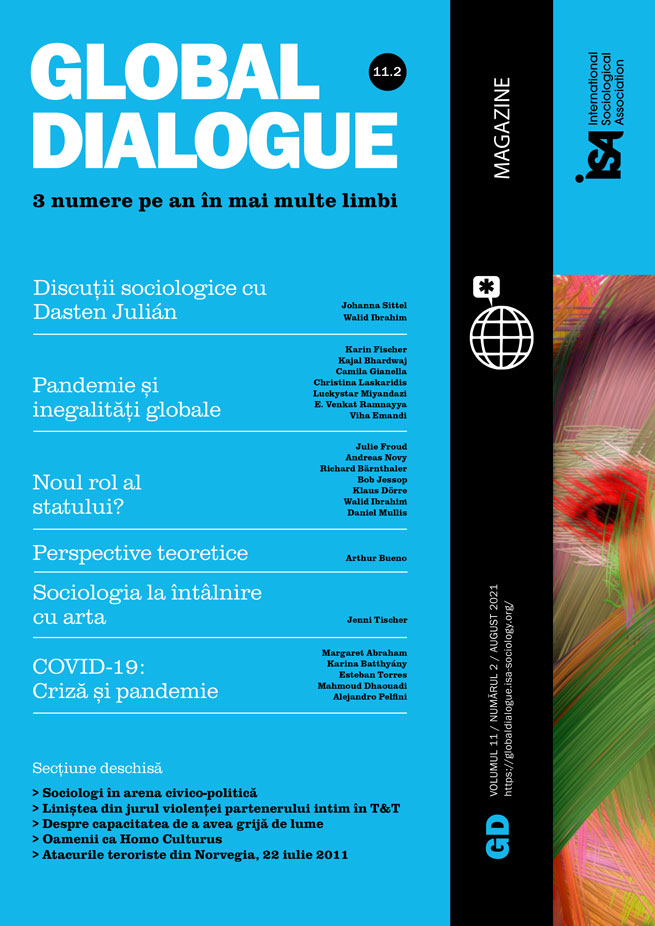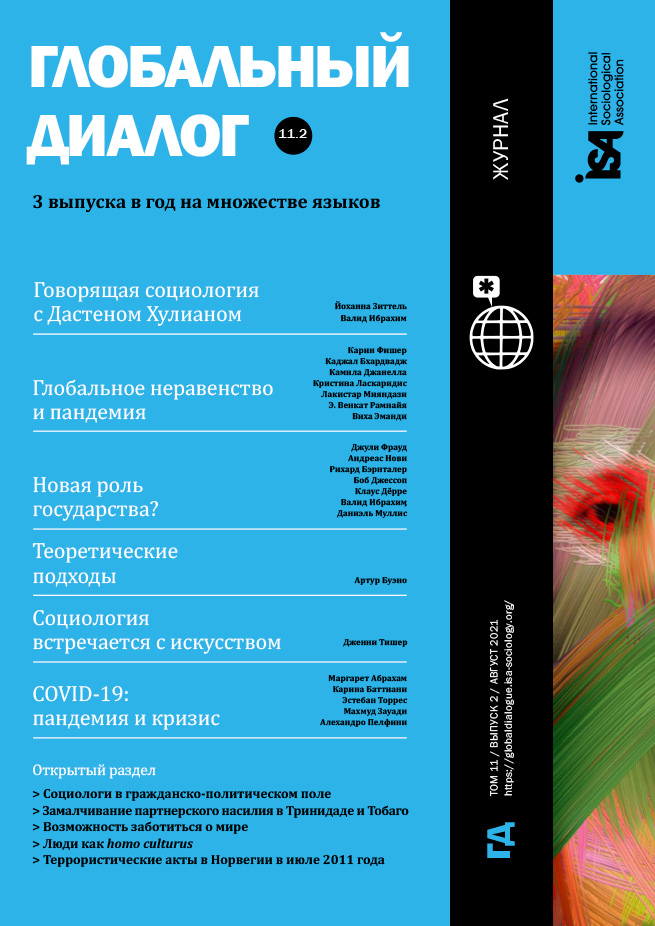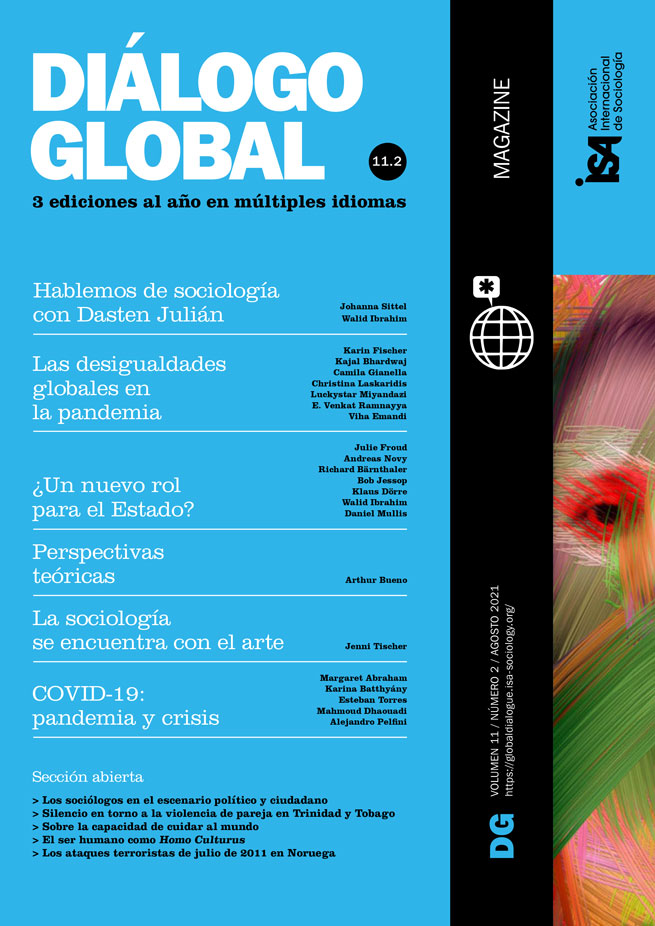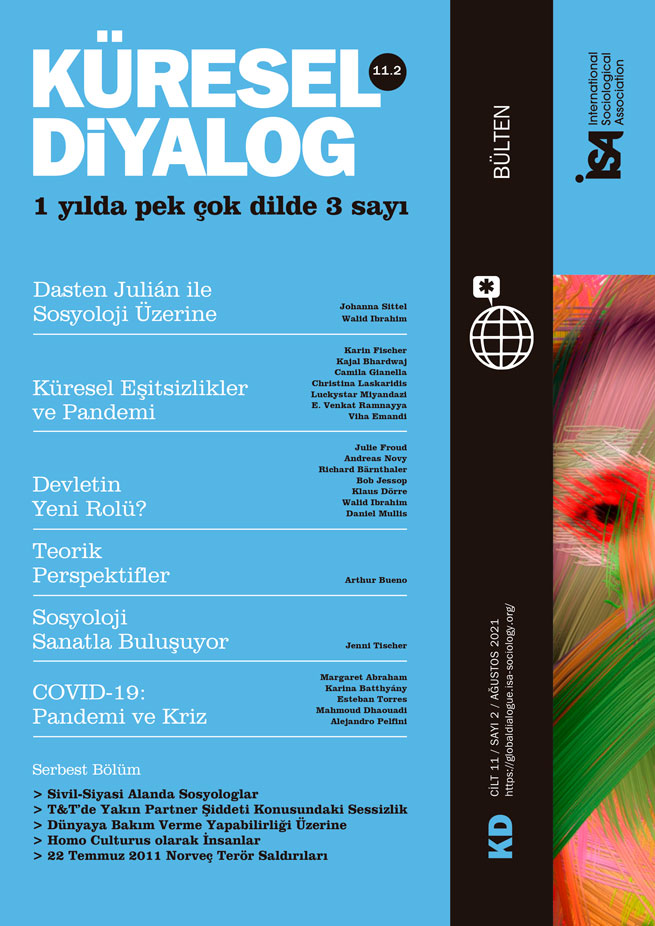After Depression: The Post-Neoliberal Subject

June 25, 2021
We live in a time of great transformations. From the financial collapse of 2008 to the wave of political protests that emerged in the following years, from the rise of new far-right movements to the current impacts of the pandemic, a series of events signal that we are at a historical crossroads: a world seems to be dying while another is yet to be born. These processes pose new challenges not only to established social institutions but also to what seems most intimate to us: they manifest an exhaustion of the ways of feeling, thinking, and acting that have prevailed in the past decades. Our crisis is also the crisis of a form of subjectivity. Without taking into account the structure of the latter and its current transformations, one cannot properly assess the dangers nor the potentials of the present. But how can one characterize this subject currently in crisis?
The entrepreneurial-depressive subject
The turn to the twenty-first century took place largely under the sign of depression. Psychological suffering seemed then no longer to be predominantly displayed in the classical neurotic symptoms of Freud’s time, but rather in feelings of exhaustion, emptiness, and an inability to act. Freudian neurosis consisted in an illness of guilt in which the subject felt torn between the allowed and the forbidden, the authority of the law and the force of repressed drives. Depression, in turn, can be described as an illness of inadequacy in which everything is apparently allowed but one feels unable to measure up to the full range of available possibilities. A person becomes depressed because she must bear the weight of the illusion that everything is achievable: split between the possible and the impossible, the endlessly available and what one is really able to accomplish, the depressed individual is a person “out of gas.”
Such a shift from neurosis to depression in clinical diagnoses does not merely concern particular experiences of suffering. Rather, it can be viewed more broadly as the sign of a new social order established from the 1960s onwards: one in which individuals came to be faced with ever stronger requirements of self-responsibility and self-realization in a context of declining social support and escalating inequality, competition, and precarity. As a result of an “elective affinity” between the development of a post-Fordist regime of accumulation and the diffusion of Romantic ideals of personal authenticity, a new subject took center stage: the neoliberal “entrepreneur of the self” supposed to obtain market success by aptly responding to the demand of “being oneself” or, as suggested by a popular self-help book, one’s Best Self: Be You, Only Better. What is required of this entrepreneurial subject, rather than disciplinary obedience, is the sustenance of a singular life both self-discovered and experimentally created, emotionally communicative and flexibly adapted to ever-changing market conditions.
The depressive individual marks the point at which this requirement of being an entrepreneur of the self becomes subjectively problematic: when the prospect of authentic self-realization turns into emptiness and exhaustion, when the search for autonomous self-determination ends up in a sense of alienation. More than just a clinical diagnosis, depression has thus become a keyword for various kinds of subjective failure with regard to normative expectations institutionalized in the last decades of the twentieth century.
Crisis and politics of exhaustion
This social configuration – which we may designate metonymically as the depressive society– is pervaded by escalating tensions, and yet managed to maintain a considerable degree of stability in the past decades. So much so that, at the turn of the twenty-first century, this institutional arrangement seemed by its very logic to hinder the articulation of depressive symptoms in terms of explicit political claims and organized social struggles. Today, however, the pressures of this order have intensified to such an extent that its persistence appears to be seriously compromised: depressive exhaustion has itself come to a point of exhaustion. It is in this regard that I suggest we speak of a post-depressive constellation: a situation in which the social-psychological tensions of the depressive order have reached a peak, leading to a variety of reactions and struggles but not yet to the establishment of a new consensus and a stable institutional framework.
Such an account finds its grounds, I shall argue, from the fact that forms of political struggle that have become prominent in the past years can be interpreted as reactions to two major tensions inherent to the neoliberal, entrepreneurial-depressive individuality.
With regard to the issue of autonomy, the promise of this form of subjectivity is that one can reach self-determination through entrepreneurial initiative: by offering an innovative product in one of the various markets of which social life is now comprised, one would be in a position to leave one’s personal mark on them and transform them in one’s image and likeness. Yet the repeated failure in fulfilling this promise leads rather to a strong sense that one is subject to a set of pre-determined laws often difficult to understand and to modify: “There Is No Alternative.” It does not come as a surprise, then, that several movements of our time manifest a marked resentment towards the ruling elites and make claims for more participation: they can be seen to constitute a reaction to the fatalism of the prevailing forms of social regulation.
Neoliberal subjectivity is also marked by a second tension, this time concerning the question of authenticity: the tension between the promise of affective connection with others and the structuration of social life as a market-like competition between atomized individuals (again synthetized by one of Thatcher’s mottos: “There is no such thing as society”). However, the demand that each person should be a self-sufficient individual has resulted in growing feelings of isolation and social fragmentation. It does not come as a surprise, then, that several political movements of our time manifest a desire for experiences of affective communion: they can be seen to constitute, in this regard, a reaction to the prevailing forms of social disintegration.
And yet, the post-depressive situation is not characterized by a single cohesive form of political action or organization. We are dealing not so much with a new order as with a new constellation, a set of different reactions and political horizons. In the following, I will address two political stances that have become prominent in the past years, but should not be taken as the only ones emerging in the current crisis. Our present is framed by a central question – what comes after depression? – with no single or prevailing answer yet.
Post-depressive effervescence
Many of the political uprisings of the 2010s – from the Arab Spring to Occupy Wall Street, from June 2013 in Brazil to the gilets jaunes in France – were marked in their decisive moments by experiences of affective immersion in a vaguely structured collectivity as well as by the absence of clearly defined goals. These two features are crucial for understanding why they can be seen as expressions of a post-depressive situation.
The normative and affective vagueness of these movements, for which they were so often criticized, was also the basis of their appeal: it allowed for a sense of togetherness based on participation in a shared atmosphere, a perception that social and political differences were no longer irreconcilable but rather could give rise to an affective unity established in and out of diversity. This is crucial for understanding the thrust of those movements. In contrast to the self-sufficiency of the self-entrepreneur and the isolation of the depressive subject, the experience of finding oneself on the streets with a multitude of people was felt by many as an affectively liberating or “cathartic” one.
Now, it is clear that this (rather indeterminate) sense of affective togetherness arose in connection with the confrontation with a common (yet also quite roughly defined) antagonist: the political system, prevailing institutions, “all that is there.” The experience of collective effervescence was intensified by its conjunction with radical, if momentary, challenges to established norms. Confrontations with the police, blockages of the streets, occupations of public institutions: suddenly, life no longer seemed to be constrained by a set of immutable, fatal, laws. In contrast to the self-entrepreneur’s adaptation to pre-given norms and the depressive subject’s feeling of powerlessness, the experience of challenging the established order could give one the sense of having regained the capacity for effective collective self-determination.
Such moments have proven to be, however, inherently unstable. Soon the perception arose that this sense of togetherness is made of heterogeneous elements that are not easily reconcilable; soon those involved realized that their normative standpoints can lead to radically different political arrangements. A new set of tensions derived precisely from the normative vagueness and affective indeterminacy of these movements. They marked the beginning of struggles concerning the political meaning and institutional articulation of that quite ambivalent collective experience – out of which emerged, among other political stances, a new wave of far-right movements.
Post-depressive authoritarianism
The growing perception of social fragmentation may explain why, similar to what had occurred in the movements of the 2010s, the recent rise of the new right has been characterized by intense expectations of affective communion. However, the experience of being immersed in a heterogeneous multitude, an indeterminate “common,” gave way here to more uniform and exclusionary conceptions of (national) communion – as in Trump’s “Make America Great Again” or Bolsonaro’s “Brazil Above Everything, God Above Everyone.”
This political stance can thus be seen to respond to social disintegration in an aggressively defensive manner: it takes affective togetherness to be possible only by way of an exclusion, or even elimination, of extraneous and corrupting elements– be they “communists” (associated with the Left), “criminals” (associated with the racialized poor), “enemies of the family” (associated with feminist and LGBTQI+ movements), etc.
Yet the new far right has not only reacted to the perception of affective fragmentation by advancing different sorts of moral crusade; it has also responded in a particular way to the sense of normative delegitimization that gained traction in the wake of the 2008 crisis and the political protests of the 2010s. In this case, what came to be felt as problematic about social institutions is not so much that they appear to embody inexorable “laws of nature” (as in the depressive order) but rather that we would live in a world in which “natural” norms have lost their efficacy. The authoritarian subject reacts less to a state of fatalism than to a perceived situation of anomie, i.e., a sense that forms of regulation that provide social relations with order and stability no longer hold.
This explains why such a political view is not oriented towards the suspension of prevailing norms, as in those previous experiences of collective effervescence, but rather towards the establishment of a repressive order. In reaction to a society perceived as socially disintegrated and anomically deregulated, the authoritarian claims a political community that could extirpate disintegrating elements and enforce norms coercive or violent enough to retain their effectiveness.
Yet, in addition to being authoritarian, the new far right is also often (and with particular clarity in the Brazilian case) characterized by claims to an even further radicalization of the neoliberal project. This is the paradox of post-depressive authoritarianism: while reacting to the crisis of neoliberal subjectivity and drawing its oppositional force from that, it strives by all means to continue, and even radicalize, that same form of subjectivity. Precisely in this paradoxical structure – an attempt to move beyond depression by reinstating the conditions of depression – lies one of the sources of its enormous destructive potential.
Authoritarianism and radical neoliberalism are thus mixed here in a peculiar (we may say: post-depressive) manner. Their political alliance leads, on the one hand, to the notion that an affective communion can be established that would be based on the exclusion, or elimination, of each and every one who refuses the ideal of an allegedly incorrupt entrepreneur of the self: “the good citizen.” It also leads, on the other, to the idea that a sufficiently cohesive normative order can be achieved only by means of the undeterred, and violent if necessary, enforcement of the “laws of the market”: there shall notbe an alternative.
Beyond depression?
It would be certainly misleading to consider such a combination of new authoritarianism and radical neoliberalism as the only or main horizon opened up by our current situation. A more comprehensive analysis, which I cannot pursue here, should consider the ways in which other political projects have been responding to the crisis of entrepreneurial-depressive subjectivity – whose inherent tensions can be seen to have become even stronger with the outbreak of the pandemic. Still, whatever path we might take collectively in this regard cannot but come from the unfolding tensions and struggles posed by such a constellation.
Arthur Bueno, University of Frankfurt, Germany and member of ISA Research Committee on Conceptual and Terminological Analysis (RC35) <oliveira@normativeorders.net>



